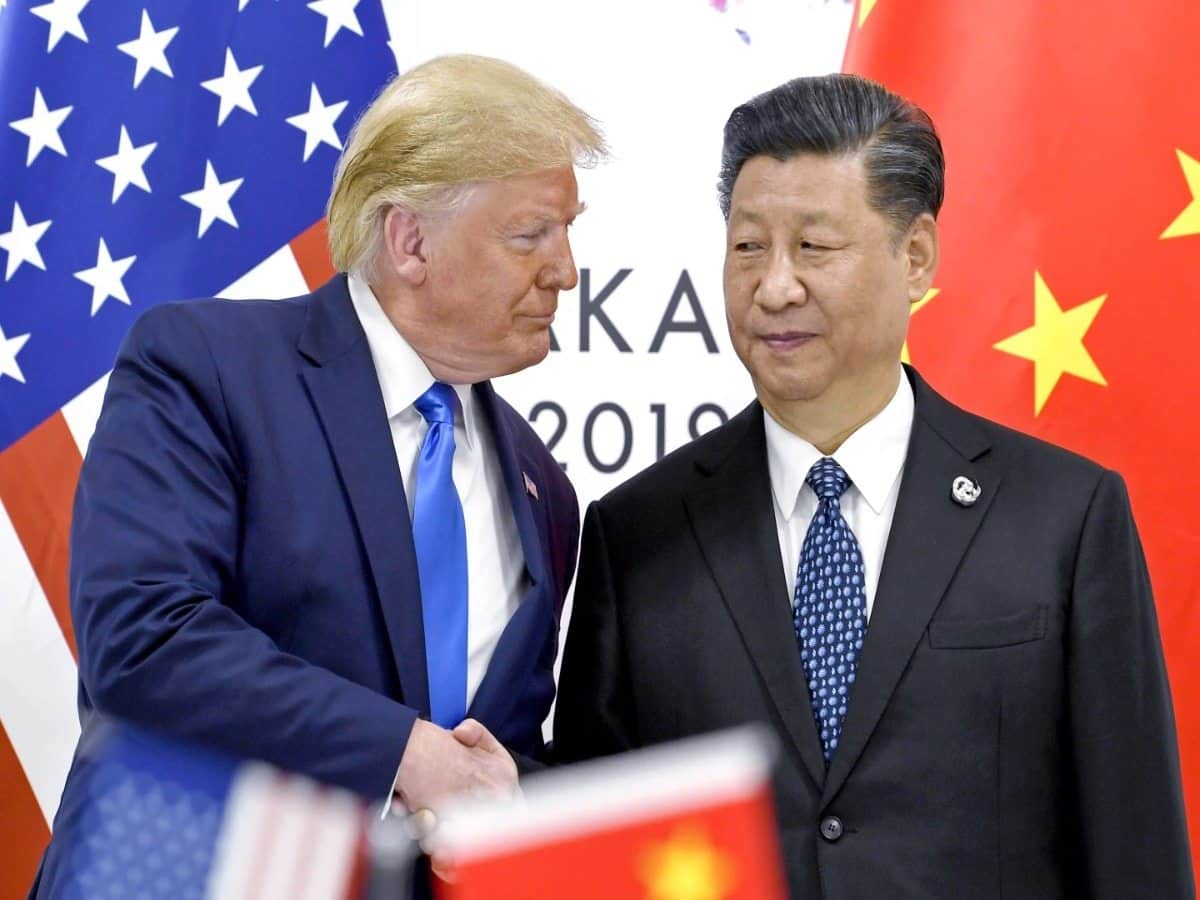President Donald Trump has said he will sit down with Chinese President Xi Jinping at a regional summit in South Korea at the end of October, and he plans to travel to China in the early months of next year. The announcement followed a phone call between the two leaders on Friday.
Writing on Truth Social, the U.S. president revealed that Xi would also come to the United States “at an appropriate time.” Trump added that the two leaders had agreed to a deal on TikTok. “The call was a very good one, we will be speaking again by phone, appreciate the TikTok approval, and both look forward to meeting at APEC!,” he posted, referring to the Asia-Pacific Economic Cooperation forum.
China’s official news agency Xinhua reported that Xi used the call to highlight the importance of bilateral ties and to urged the U.S. against imposing unilateral trade restrictions.
READ ALSO: U.S. and China reach framework deal on TikTok ownership amid wider trade talks
The exchange marked the second time the two leaders have spoken since Trump returned to the White House and reimposed sweeping tariffs on Chinese goods. While both governments have escalated trade measures, Trump has signaled he is open to negotiation, especially on TikTok, which faces a U.S. ban unless its Chinese owner sells control of the app.
Their first call in June reportedly focused on China’s restrictions on rare earth exports, key to industries from consumer electronics to defense. Trump previewed Friday’s call a day earlier, saying, “I’m speaking with President Xi, as you know, on Friday, having to do with TikTok and also trade. And we’re very close to deals on all of it.” He also insisted his ties with Xi were “very good,” while linking Russia’s war in Ukraine to China’s trade with Europe, suggesting higher tariffs on China could pressure Russia.
The Chinese Embassy in Washington has not confirmed any October meeting. Its spokesperson Liu Pengyu said Thursday that “heads-of-state diplomacy plays an irreplaceable role in providing strategic guidance for China-U.S. relations.”
Analysts say both governments want the summit to happen. “Both sides have strong desire for the leadership summit to happen, while the details lie in the trade deal and what can be achieved for both sides from the summit,” said Sun Yun, who directs the China program at the Stimson Center in Washington.
U.S. Treasury Secretary Scott Bessent said after trade talks in Madrid this week that negotiators had reached a framework agreement on TikTok’s ownership. Trump and Xi are expected to finalize details during their discussions. Trump has extended several deadlines for ByteDance to sell its stake, arguing that TikTok “has tremendous value” and that the U.S. holds leverage because “we’re the ones that have to approve it.”
READ ALSO: TikTok ban deadline will keep being extended – Trump explains why
U.S. lawmakers remain skeptical. Rep. Raja Krishnamoorthi, the ranking Democrat on the House Select Committee on the Chinese Communist Party, insisted TikTok’s data and algorithm must be “truly in American hands” to comply with U.S. law.
China has said that an agreement has been reached on intellectual property rights and on entrusting a partner to manage U.S. user data and content security. But trade frictions run deeper. Four rounds of talks since May have paused some tariffs and slowed new export controls, yet disputes over agriculture, tech, and fentanyl remain unsettled.
Experts say Trump is likely to frame negotiations as evidence of U.S. leverage, while Xi is expected to stress China’s economic weight and push for a rollback of U.S. tariffs and sanctions.
Meanwhile, the costs of the standoff are mounting. Trump’s renewed trade war has cut off a vital market for U.S. farmers. Between January and July, American agricultural exports to China fell by more than half compared to last year, with sorghum sales collapsing by 97 percent.
Josh Gackle, chair of the American Soybean Association, said farmers are watching the talks closely. “There’s still time. It’s encouraging that the two countries continue to talk,” he said. “I think there’s frustration growing at the farmer level that they haven’t been able to reach a deal yet.”










